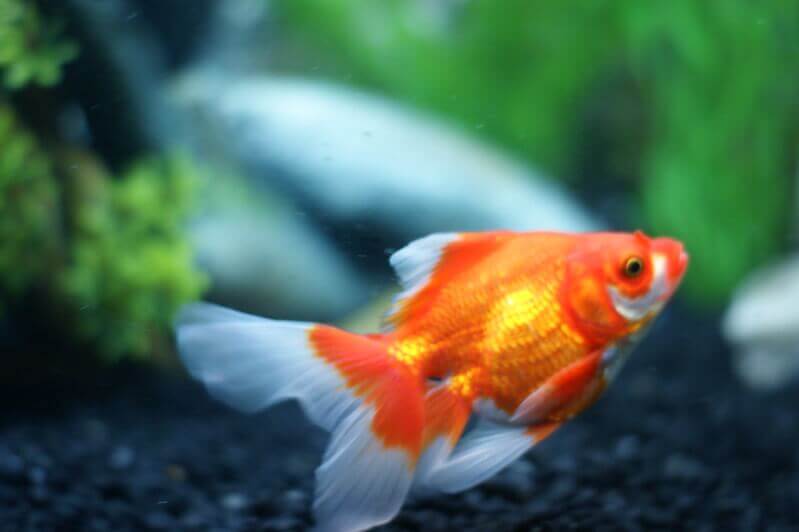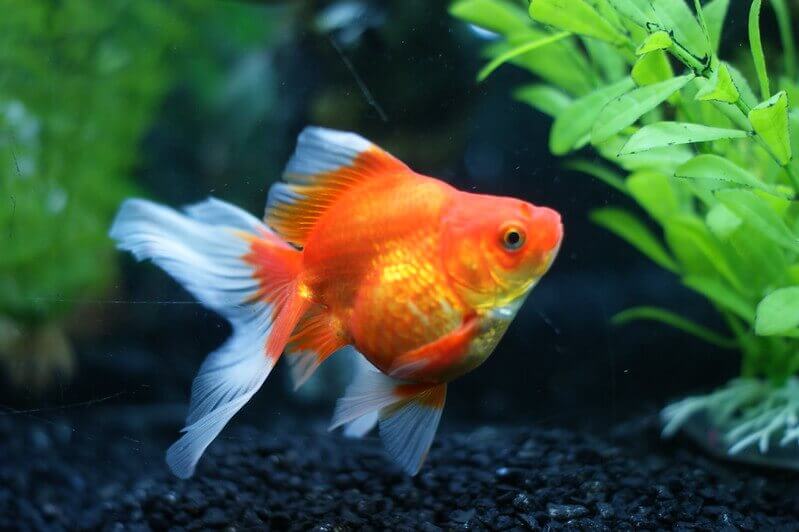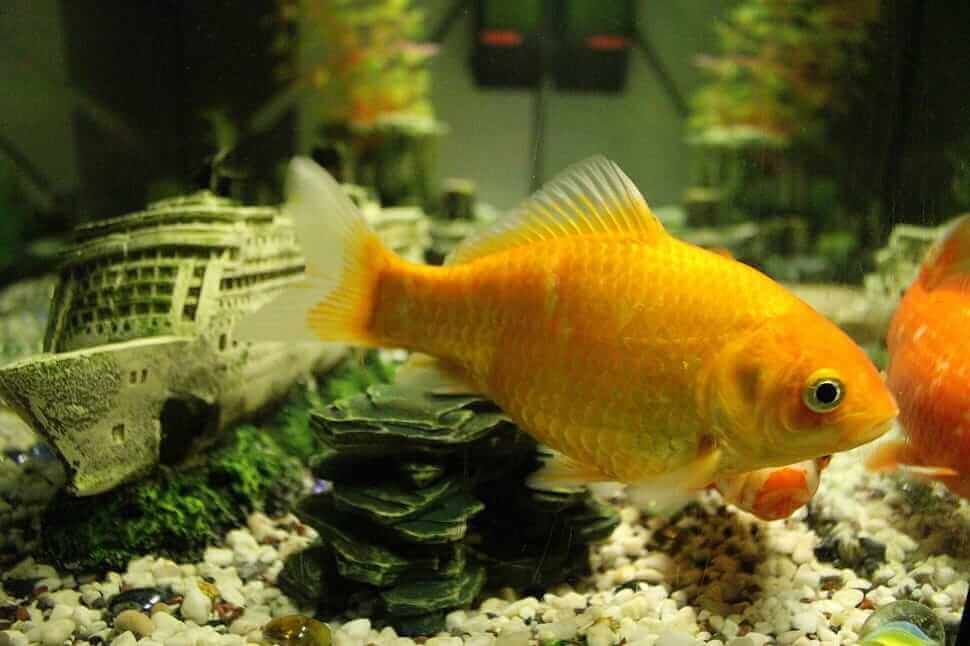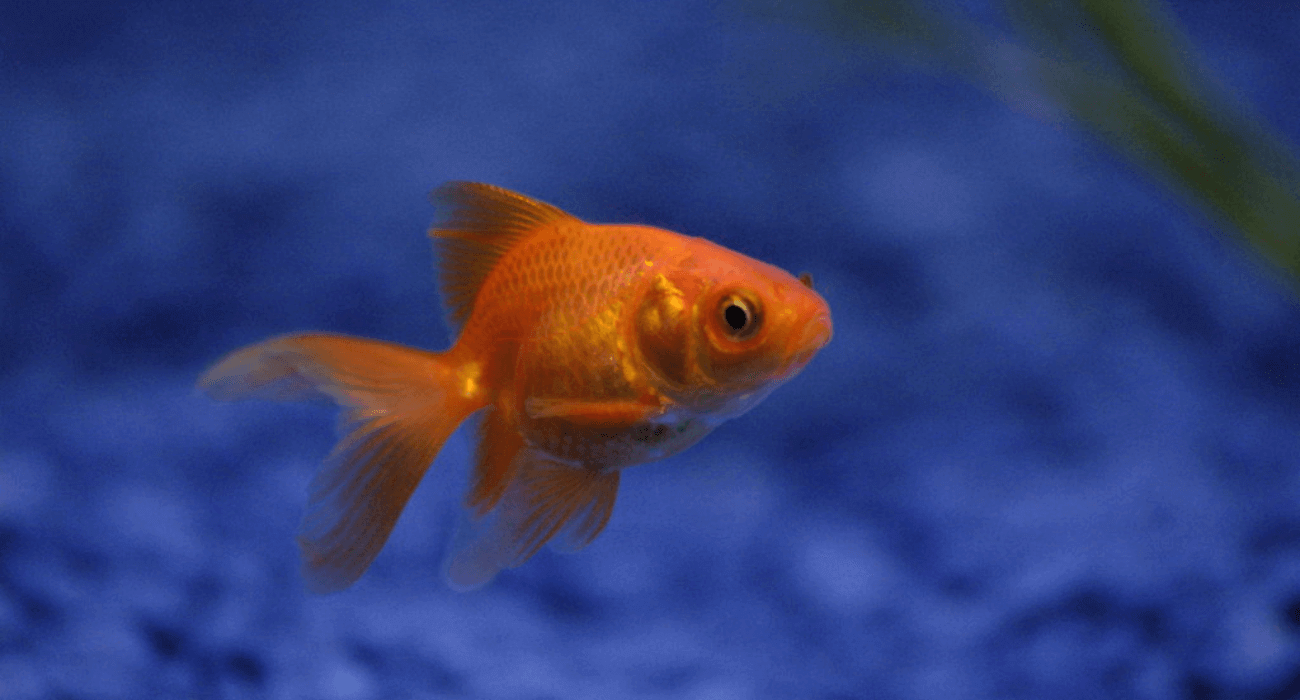As an Amazon Associate, I earn from qualifying purchases
Goldfish can survive up to two weeks without food. If properly conditioned, some may last even a bit longer.
Goldfish are hardy creatures, renowned for their ability to endure various conditions. Their resilience extends to their diet, as they can go for extended periods without feeding. This capability makes them favorable pets for individuals who may occasionally have inconsistent feeding schedules.
Understanding the limits of your goldfish’s survival without food helps ensure their health and wellbeing. Proper care, including regular feeding routines, contributes to their longevity, which can reach up to 10 years or more under optimal conditions. It’s crucial for goldfish owners to balance their pet’s dietary needs with the occasional unavoidable absence to maintain a healthy aquatic environment.
The Goldfish: A Resilient Aquarium Favorite
Goldfish a creature of beauty and endurance. Often the first pet for many, goldfish bring life and color to any room. These small finned friends are admired for their adaptability. But have you ever wondered about their survival skills? Especially, how long can they go without food?
Life Span Of Domestic Goldfish
Goldfish are known for their relatively long life spans compared to other fish. With proper care, these pets can live for a decade or more. Feeding is critical, but they can survive for short periods without food.
- Adequate nutrition extends life expectancy.
- Goldfish can live for up to two weeks without food under certain conditions.
- Younger fish require more regular feeding compared to adult goldfish.
The Anatomy Of Survival
Goldfish have developed efficient biological mechanisms to cope with food scarcity. Understanding their anatomy can shed light on their resilience.
- Goldfish convert stored glycogen into glucose during fasting.
- They can digest fibrous plant material if food is scarce.
- An adaptive metabolism helps to reduce energy needs.
Goldfish are not just pretty faces; they come equipped with an anatomy built for survival. Yet, it’s important to maintain regular feeding for health and longevity.
Myth Vs. Reality: Goldfish Memory And Metabolism
Exploring the popular myths surrounding goldfish often unfolds surprising facts about these aquatic pets. Among the most common concerns is how long goldfish can survive without food. Another is their memory span, which is underestimated frequently. This section dives into the reality regarding goldfish memory and metabolism.
Debunking Goldfish Memory Myths
It’s time to forget the ‘3-second memory’ myth. Science has shown this is far from true. Research reveals goldfish can remember for months, not just seconds or minutes. Training experiments have proven that these fish recall how to perform tasks after extended periods.
- Goldfish learn to navigate mazes and can recall the way weeks later.
- They recognize time patterns for feeding and display anticipation.
- Associative learning allows them to remember people who regularly feed them.
Goldfish Metabolic Adaptations
Goldfish show remarkable metabolic resilience. In ideal conditions, they can go without food for up to two weeks. This attribute relates to how their bodies adapt to food availability.
During fasts, goldfish access stored energy from their body, sparingly using their reserves. They slow down their metabolism to conserve energy. This adaptation is crucial for their survival in the wild, where food supply can be irregular.
| Condition | Impact on Feeding Frequency |
|---|---|
| Water Temperature | Lowers metabolism; reduces food need |
| Goldfish Age | Mature fish can endure longer without food |
| Health Status | Healthy fish cope better with fasting |
How long a goldfish can survive without a meal thus depends on various factors. Their memory and metabolic adaptations are just two elements that play a vital role in their resilience. Through understanding the reality beyond myths, we can appreciate the tenacity of goldfish and ensure their proper care.
Feeding Requirements: How Much And How Often?

Understanding the proper feeding requirements for goldfish is crucial to their health. A common question among goldfish owners is how much and how often to feed their aquatic friends.
Assessing Daily Nutritional Needs
Goldfish, like any pet, have specific daily nutritional needs.
- A balanced diet keeps them healthy and active.
- Feed once or twice a day.
- A pinch of flakes or pellets is enough.
Fasting days once a week can prevent health issues. Young goldfish need more food and more frequent feedings.
The Consequences Of Overfeeding
Overfeeding is a common mistake among goldfish keepers.
- It leads to dirty water and disease.
- Fish cannot eat all the food, which decays in the tank.
- Water quality suffers, harming fish health.
Stick to the recommended amount and observe your fish.
What Happens When Goldfish Don’t Eat
What Happens When Goldfish Don’t Eat’ can sound ominous for the aquatic pets we cherish. Goldfish owners often worry about their finned friends going hungry, especially when away on vacation or caught up in a busy schedule. But what exactly goes on behind those glassy eyes and orange scales when a goldfish faces an empty tank? Let’s dive into the science of goldfish fasting and uncover the resilience of these popular pets.
Physiological Changes In Fasting
Goldfish, much like any organism, undergo several internal adjustments when food becomes scarce. Their metabolism slows down to conserve energy. The goldfish’s body starts using stored nutrients to keep vital functions running. Survival mode kicks in, and the fish becomes less active.
During this period, several changes occur:
- Reduced activity conserves energy
- Metabolic rate decreases to adapt to the food shortage
- Stress levels may increase, indicated by changes in color or behavior
The Role Of Fat Reserves And Glycogen
Goldfish are equipped with natural energy reserves that play a crucial role during fasting. Fat reserves and glycogen, stored in the liver, become the primary fuel sources. These reserves buy the fish time before starvation impacts its health severely.
| Reserve | Function | Duration |
|---|---|---|
| Fat | Long-term energy source | Varies by fish |
| Glycogen | Short-term energy release | Up to a few days |
As the fasting continues:
- Glycogen is the first to be consumed.
- Next, the body breaks down fat for energy.
- Protein from muscles is the last reserve used.
A goldfish’s survival without food varies with temperature, size, and initial health. Most can last for one to two weeks without major health issues. Yet, consistently missing meals isn’t a practice to adopt for healthy goldfish care.
Survival Of The Fittest: Goldfish In The Wild Vs. Captivity

Goldfish are resilient. In the wild, they face harsh conditions. They must hunt for food, hide from predators, and adapt to changing environments. Captive goldfish live differently. Their owners provide food and safety. But what happens when they must survive without food? The answer varies between goldfish in the wild and those in captivity. Let’s explore how each manages without their regular meals.
Foraging Strategies In Natural Habitats
Wild goldfish are natural foragers. They scour their surroundings for sustenance. A goldfish’s diet in nature often includes:
- Insects
- Plant matter
- Small crustaceans
These fish find food by stirring up the substrate. This releases hidden meals, such as worms. They use their keen senses to spot edibles. When food is scarce, wild goldfish slow down. This reduces their need for food. Goldfish can live several weeks without eating this way.
Differences In Captive Goldfish Diets
Captive goldfish rely on humans. Owners feed them flakes, pellets, and sometimes, live food. This diet differs from the wild. What if a goldfish’s owner forgets to feed it? Captive goldfish face challenges. They might lack foraging skills. Their tanks don’t always have natural food sources. Still, captive goldfish can survive for up to two weeks without being fed.
| Environment | Foraging Skills | Survival Without Food |
|---|---|---|
| Wild | High | Several weeks |
| Captivity | Varies | Up to two weeks |
In summary, goldfish survival without food depends on the environment. Wild goldfish have evolved foraging strategies. Captive goldfish diets don’t prepare them for scarcity. Yet, both have incredible resilience. They can fast for surprising lengths of time.
The Fasting Experiment: Documented Cases Of Goldfish Survival
Goldfish are remarkable creatures known for their resilience. But just how long can they go without food? This section explores real-life instances where goldfish have defied the odds by surviving for extended periods without feeding.
Recorded Instances Of Prolonged Fasting
Various goldfish owners and enthusiasts have documented cases where these aquatic pets have gone without food for quite some time:
- A family goldfish survived 134 days alone in an earthquake-stricken home.
- Another goldfish reported fasting for over six weeks during a vacation period.
- A forgotten tank led to goldfish fasting for 45 days, yet they thrived.
Scientific Observations And Findings
Scientific studies have shed light on goldfish survivability without food. Key observations include:
| Study | Duration | Outcome |
|---|---|---|
| Goldfish in Control Environment | 8 Weeks | Survived and healthy after food reintroduced |
| Goldfish in Natural Pond | 5 Weeks | Survived; utilized natural resources minimally |
Research indicates that goldfish can enter a state of lowered metabolism to survive without food for weeks. These adaptable creatures can draw on their energy reserves to sustain themselves.
Intervention Strategies: When To Intervene In A Fast
Goldfish owners often wonder about the limits of their finned pets’ fasting. At some point, deciding when to intervene can be crucial. Knowing when and how to step in during a fish fast is key to maintaining their health.
Monitoring Health And Signs Of Stress
Regular checks on your goldfish during a fast are vital. Look for changes in behavior or appearance. Signs of stress may include:
- Lethargy
- Loss of color
- Clamped fins
- Erratic swimming
If any of these signs appear, it’s time to end the fast.
Resuming Feeding After A Fast
When reintroducing food, start with small amounts. Use these steps:
- Offer a small pinch of flakes.
- Wait and observe for 24 hours.
- Increase food slowly over several days.
Monitor closely for any distress. This process helps fish readjust without shock to their system.
Best Practices For Goldfish Care During Absences
Are you planning to be away from home? Goldfish care is crucial, even when you’re not around. Goldfish can survive for a week or two without food, but it’s wise to make provisions if you’ll be absent for long periods. Here are practical tips to keep your goldfish happy and healthy while you’re away.
Preparation For Vacation Feeding
Preparing your goldfish before a vacation is essential. Follow these simple steps:
- Gradually reduce feeding one week before leaving to help them adjust.
- Clean the tank thoroughly to ensure a healthy environment.
- Perform a water change to reduce waste and refresh parameters.
- Test the water to confirm optimal conditions.
Consider asking a neighbor to check on your tank every few days to ensure everything remains stable.
Automated Feeders And Scheduled Feeding
Automated feeders are a smart solution for feeding goldfish during absences. Here’s how to use them effectively:
- Choose a reliable feeder with adjustable portions to prevent overfeeding.
- Set the feeder to distribute small amounts of food.
- Ensure the feeder’s batteries are fresh or it’s plugged in to avoid malfunctions.
Scheduled feeding is another option. You can set specific days and times for someone to feed your fish. Provide them with a pre-measured amount of food to ensure your goldfish are not overfed.
Preventative Measures: Avoiding Involuntary Fasting

Caring for goldfish requires attention to their dietary needs. Goldfish can survive a couple of weeks without food, but this is not ideal. Preventing involuntary fasting is key to their health.
Establishing A Routine Feeding Schedule
A regular feeding schedule keeps goldfish healthy. Set specific times for feeding each day. This routine helps them anticipate mealtime. It also reduces overfeeding.
| Age of Goldfish | Feedings per Day |
|---|---|
| Babies (Juveniles) | 3 to 4 times |
| Adults | 1 to 2 times |
Stick to the schedule even when life gets busy. Automated feeders help when you’re away.
Ensuring A Balanced Diet
Nutrition impacts longevity. Offer a mix of food types to meet their needs.
- Flakes and pellets for staples
- Fresh veggies like peas and lettuce for fiber
- Proteins such as brine shrimp for occasional treats
Avoid cheap feeds. High-quality foods contribute to their well-being.
Empowering Goldfish Owners: Knowledge For Healthy Aquariums
Goldfish are more than pets; they’re aquatic companions that rely on our care. Knowing how long goldfish can survive without food is crucial for their health and well-being. Through education and community support, goldfish enthusiasts can create thriving environments for their finned friends.
Educational Resources For Fish Enthusiasts
Empowerment starts with education. A range of resources is available for goldfish care:
- Books and eBooks: Full of insights on goldfish needs.
- Online courses: Learn from experts at your own pace.
- Local aquarium clubs: Tap into the knowledge of experienced owners.
These resources cover feeding schedules, tank maintenance, and tips for long-term goldfish health.
Community Support And Shared Experiences
Joining a community of fellow goldfish enthusiasts can be invaluable. It offers:
- Forums: Discuss care strategies and learn from others.
- Social media groups: Connect with and support fellow owners.
- Local fish clubs: Attend meetings and make new friends.
With community support, understanding how goldfish thrive becomes easier and more rewarding.
Frequently Asked Questions Of How Long Can Goldfish Live Without Food
Can Goldfish Survive Without Food For 3 Days?
Yes, goldfish can survive without food for up to two weeks. Three days without food typically poses no health risks for a healthy goldfish.
Can I Leave My Goldfish For A Week?
Yes, you can leave your goldfish for a week. Ensure they have a clean tank and a timed feeder to dispense food. Regular light cycles and stable water conditions are essential to keep them healthy during your absence.
Is It Ok To Feed Goldfish Once A Day?
Yes, feeding goldfish once a day is acceptable. Ensure the portion size is appropriate for their size and consumed within two minutes.
How Long Can A Goldfish Survive In A Bowl?
Goldfish typically survive in a bowl for a few years, but their lifespan is shorter than in larger tanks. Proper care can extend their life.
What Is A Goldfish’s No-food Survival Time?
Goldfish can typically survive for up to two weeks without food, though this is not ideal for their health.
Can Goldfish Endure Prolonged Fasting Periods?
While goldfish can endure periods without food, extended fasting can harm their wellbeing and shorten their lifespan.
How Does Water Temperature Affect Goldfish Starvation?
Colder water slows a goldfish’s metabolism, potentially allowing it to survive longer without food compared to warmer water.
What’s The Minimum Food Requirement For Goldfish?
A goldfish’s minimum food requirement is varied feeding once every 24-48 hours, ensuring a balanced diet.
Will Goldfish Eat Tank Algae When Unfed?
Goldfish may resort to eating algae and other available tank resources if they are not provided with regular food.
How Do I Prepare Goldfish For No Feeding?
If unavoidably leaving goldfish without feeding, ensure optimal water quality and feed them well before departure.
Conclusion
Goldfish resilience is truly remarkable, often surviving weeks without food. Proper care, however, means regular, balanced meals to maintain their health. It’s essential to plan for feeding, especially during extended absences. Seeking a pet-sitter or using vacation feeders can prevent long periods of fasting.
Remember, while they can endure, their well-being is our responsibility.
As an Amazon Associate, I earn from qualifying purchases

